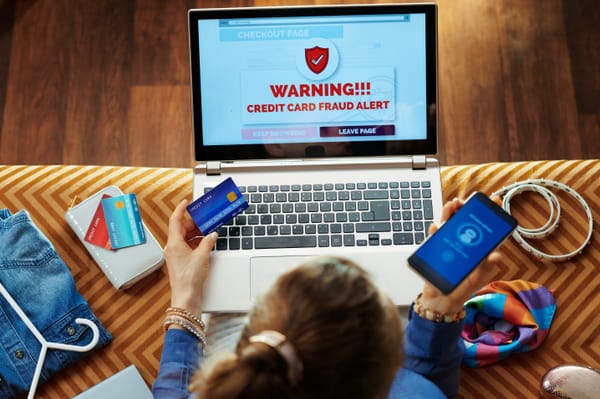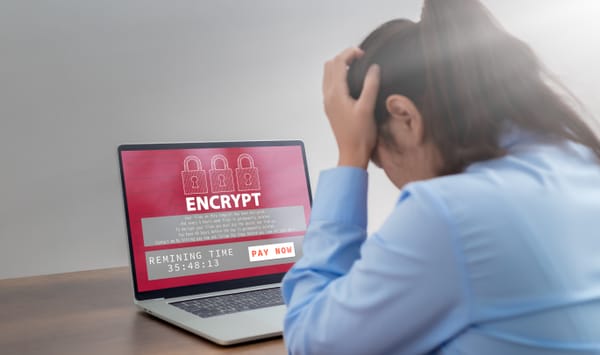Creating a Security Culture: Showing Small Businesses and Schools How to Combat Cyber Threats

Cybersecurity is more than just the technical, it is also about creating a culture of security awareness and responsibility.
It’s important to create secure habits within small businesses and schools in order to mitigate cybersecurity risks.
Here are some steps that can be followed in order to build habits for developing a security-conscious culture.
Promoting a Security Mindset
The foundation to building strong security practices in any organization is to first cultivate a security-first mindset:
- Training and Awareness: Conduct regular training workshops to educate staff, students, and faculty about cybersecurity threats, best practices, and their role in protecting the organization's assets.
- For Schools: Integrate cybersecurity awareness into the curriculum, teaching students about online safety, responsible technology use, and the importance of protecting personal information.
- For Small Businesses: Implement mandatory cybersecurity training for all employees, covering topics like password security, phishing awareness, and safe browsing habits.
- Encourage speaking out: Encourage a culture where everyone feels comfortable reporting suspicious activity or potential security breaches without fear of being labeled.
- For Schools: Establish clear reporting channels for students and staff to report cyberbullying, phishing attempts, or any other online concerns.
- For Small Businesses: Create a dedicated email address or hotline for employees to report security incidents or concerns.
- Responsibility: Emphasize that cybersecurity is everyone's responsibility, from the CEO to the newest employee or student. Everyone plays a role in maintaining an organizations online presence safe.
- For Schools: Encourage students to take ownership of their online safety by practicing responsible social media use, protecting their passwords, and reporting suspicious activity.
- For Small Businesses: Involve employees in the development and implementation of security policies, fostering a sense of ownership and accountability.
Steps for Building Strong a Habits
Apart from having a security mindset, practical steps have an even greater advantage in strengthen an organization’s security posture:
- Password Management: Enforce strong password policies, requiring unique, complex passwords for all accounts. Encourage the use of password managers to simplify password management.
- For Schools: Provide students with guidance on creating strong passwords and offer password manager tools for secure password storage.
- For Small Businesses: Implement a company-wide password manager solution and provide training on its proper use.
- Device Security: Implement clear policies for device usage, including personal devices brought to school or work, Bring Your Own Device(BYOD). Require security software (antivirus, anti-malware) on all devices and enforce strong passcode or biometric authentication.
- For Schools: Establish clear BYOD policies that outline acceptable use, security requirements, and consequences for violations.
- For Small Businesses: Implement a mobile device management (MDM) solution to secure and manage company-owned and employee-owned devices.
- Data Protection: Emphasize the importance of protecting sensitive data, both in digital and physical formats. Implement access controls to restrict access to confidential information and enforce secure data disposal practices.
- For Schools: Train staff on proper handling of student records and implement secure storage solutions for sensitive data.
- For Small Businesses: Develop a data classification policy to identify and categorize sensitive data, and implement appropriate security controls based on the data's sensitivity level.
- Regular Backups: Establish a regular backup routine for critical data, ensuring that backups are stored securely (offsite or in the cloud). Test backups periodically to ensure they can be restored successfully.
- For Schools: Implement automated backups for student data, financial records, and other critical systems.
- For Small Businesses: Develop a comprehensive data backup and recovery plan that outlines the frequency of backups, the types of data to be backed up, and the recovery process
Software Updates: Enforce a policy of keeping all software (operating systems, applications, browsers) up-to-date. Enable automatic updates whenever possible to ensure timely installation of security patches. - For Schools: Schedule regular maintenance windows to install software updates on all school computers and devices.
- For Small Businesses: Implement a patch management system to automate the process of deploying software updates across all devices.
- Secure Wi-Fi Networks: Use strong passwords and encryption (WPA2 or WPA3) for all Wi-Fi networks. Consider separate guest networks for visitors to segment network access.
- For Schools: Implement robust Wi-Fi security measures to protect the school network and student data.
- For Small Businesses: Regularly review and update Wi-Fi security settings to ensure optimal protection.
- Email Security: Train staff and students to recognize phishing attempts and other email scams. Implement spam filters and email security protocols to reduce the risk of malicious emails reaching inboxes.
- For Schools: Educate students about online safety and responsible email practices.
- For Small Businesses: Conduct regular phishing simulations to test employee awareness and reinforce training.
- Incident Response: Develop an incident response plan that outlines the steps to take in case of a cybersecurity incident. This plan should include procedures for1 reporting, investigating, and recovering from security breaches.
- For Schools: Establish a clear protocol for responding to cyberbullying incidents, data breaches, or other security events.
- For Small Businesses: Designate a team responsible for handling security incidents and ensure they have the necessary training and resources.
(Reference: Cybersecurity Best Practices)
Conclusion
There is a Chinese proverb that says: “Build ditches to prevent flooding; prepare for the rain before it falls.”
Similarly, with cybersecurity, we cannot build a security culture in the minds of others during a security breach, we must build before it happens.
When organizations encourage staff to be cyber aware through its own organized training and workshops, eventually there will be improvements in online interactions.
So, let’s seek to have regular training, a secure device management system, and strong data protection policies, to make sure that cybersecurity becomes a natural part of our daily routines.
To further support your cybersecurity journey, we include with our subscriptions, cybersecurity kits for small businesses, schools, and individuals:
The FREE MasadaOffensive Guide comes with three Cybersecurity Kit: Ideal for small businesses, schools beginning to build their security framework, and individuals who also want to be cybersecure. this kit includes a checklist of important things you must consider in protecting yourself or your organization from threats online.
The paid MasadaOffensive Mastery monthly or annual plan comes with the Pro Cybersecurity Kit: For small businesses and schools seeking an advanced guide with a little more detail. You also will get the first of our howTo: guide with many more to come.
Investing in these resources will empower your team to proactively address cyber threats and maintain a secure digital environment.
Equip yourself and your organization with the tools necessary to build strong security practices. Explore our Free and Pro Cybersecurity Kits today to take the next step in fortifying your digital defenses.





